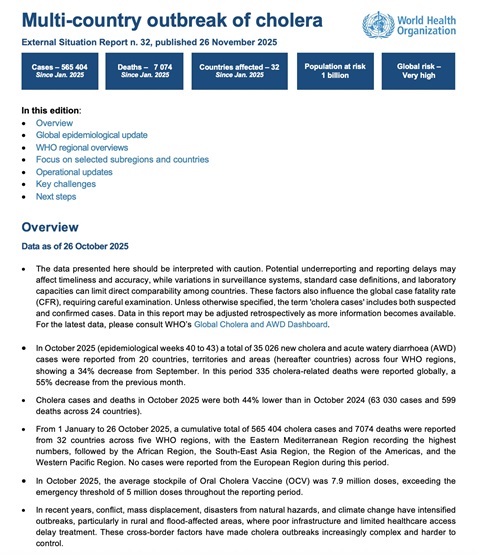Laredo votes to make mental health services a priority – KGNS

Report on Laredo’s Mental Health Initiatives and Alignment with Sustainable Development Goals
Executive Summary: Investment in Community Well-being and SDG 3
The City of Laredo has authorized over $300,000 in funding for a series of initiatives aimed at enhancing the mental well-being of its residents and first responders. These strategic investments directly support the United Nations Sustainable Development Goal 3 (SDG 3), which aims to ensure healthy lives and promote well-being for all. The programs address critical areas including suicide prevention, public counseling services, substance abuse treatment, and specialized mental health support for public safety personnel, contributing to the creation of a healthier and more resilient community in line with SDG 3 and SDG 11 (Sustainable Cities and Communities).
Community-Wide Mental Health Programs
Several initiatives have been funded to enhance mental health services for the general public, directly addressing key targets within SDG 3: Good Health and Well-being.
1. Strengthening Suicide Prevention Efforts
In alignment with SDG 3.4, which seeks to promote mental health and well-being, the city has reinforced its Suicide Prevention Committee with the appointment of Armando Duarte. This action strengthens the institutional framework for mental health promotion and suicide prevention within the community.
2. Expanding Public Mental Health Counseling Services
A substantial grant will significantly expand accessible mental health services, a core component of achieving universal health coverage as outlined in SDG 3.
- Funding Source: A $162,231.00 grant from Texas A&M International University (TAMIU) via the Texas Higher Education Coordinating Board.
- Timeline: August 1, 2025, through July 31, 2027.
- SDG Impact: The grant, which requires no city match, will fund a Licensed Professional Counselor position at the Laredo Public Health Department, directly increasing the community’s access to vital mental health care.
3. Combating Opioid Use Disorder
To address SDG 3.5, which calls for strengthening the prevention and treatment of substance abuse, the city is expanding its case management services for individuals with opioid use disorders.
- Funding Amount: $48,742.00 for the Detoxification Department.
- Timeline: November 1, 2025, through September 30, 2026.
- Objective: This funding will enhance support systems to aid recovery and well-being, contributing to a healthier populace.
Specialized Support for First Responders
Recognizing that the well-being of first responders is crucial for maintaining safe communities (SDG 11) and effective institutions (SDG 16), the city has allocated dedicated resources to support their mental health.
Laredo Fire Department: Health & Wellness Initiative
A psychological services agreement has been established to provide comprehensive mental health support for fire personnel, ensuring their capacity to serve the community effectively.
- Contract Value: $69,750.00 with Dr. Gina Dunckel, Psy.D., P.L.L.C.
- Services Provided:
- Peer support consultation services.
- Review of peer support protocols.
- Psychoeducation and presentation programs.
- After-action sessions following critical incidents.
Laredo Police Department: Mental Health and Crisis Intervention Support
The police department will receive funding through two grant programs to bolster its mental health infrastructure and crisis response capabilities, reinforcing its role in promoting peace and justice (SDG 16).
- First Responder Mental Health Grant, Peer Support Program:
- Total Funding: $34,754.82, comprising a $27,803.85 grant from the Office of the Governor and a $6,950.97 city match.
- Purpose: To sustain the LPD Peer Support Program by funding clinical advisory, trauma counseling, and training from October 1, 2025, to September 30, 2026.
- Criminal Justice Grant Program – Mental Health/Crisis Intervention Unit:
- Total Funding: $11,116.29 from the Office of the Governor.
- Purpose: To provide overtime and specialized training for the Mental Health/Crisis Intervention Unit from October 1, 2025, to September 30, 2026.
Analysis of SDGs, Targets, and Indicators
1. Which SDGs are addressed or connected to the issues highlighted in the article?
-
SDG 3: Good Health and Well-being
- This is the most prominent SDG addressed. The article’s central theme is the city of Laredo’s investment in enhancing the mental well-being of its residents and first responders. Initiatives like suicide prevention, mental health counseling, support for opioid use disorder, and mental health services for police and fire personnel directly contribute to ensuring healthy lives and promoting well-being for all at all ages.
-
SDG 11: Sustainable Cities and Communities
- The article discusses municipal efforts to improve essential public services for its residents. By expanding mental health counseling through the Laredo Public Health Department and establishing crisis intervention units, the city is making itself safer, more inclusive, and more resilient, which aligns with the goal of improving community life and basic services.
-
SDG 16: Peace, Justice and Strong Institutions
- The initiatives described in the article demonstrate the development of more effective and accountable local institutions. The city council, public health department, police, and fire departments are being strengthened with dedicated funding and specialized programs (e.g., Peer Support Program, Mental Health/Crisis Intervention Unit) to better address the community’s needs. Furthermore, the focus on suicide prevention directly relates to reducing all forms of violence and related death rates.
2. What specific targets under those SDGs can be identified based on the article’s content?
-
Under SDG 3: Good Health and Well-being
- Target 3.4: “By 2030, reduce by one third premature mortality from non-communicable diseases through prevention and treatment and promote mental health and well-being.” The article directly addresses this target by detailing multiple programs aimed at promoting mental health, including the establishment of a Suicide Prevention Committee and the expansion of counseling services to the community.
- Target 3.5: “Strengthen the prevention and treatment of substance abuse, including narcotic drug abuse and harmful use of alcohol.” The funding of $48,742.00 for the Detoxification Department to expand case management services for individuals with opioid use disorders is a clear action towards this target.
-
Under SDG 11: Sustainable Cities and Communities
- Target 11.1: “By 2030, ensure access for all to adequate, safe and affordable housing and basic services…” The provision and expansion of mental health services by the Laredo Public Health Department and the creation of a police Crisis Intervention Unit are examples of a city improving access to essential “basic services” for its residents.
-
Under SDG 16: Peace, Justice and Strong Institutions
- Target 16.1: “Significantly reduce all forms of violence and related death rates everywhere.” The focus on suicide prevention through a dedicated committee is a direct effort to reduce a specific type of violence-related death.
- Target 16.6: “Develop effective, accountable and transparent institutions at all levels.” The article showcases how municipal bodies like the City Council, Police Department, and Fire Department are developing more effective programs by allocating specific funds (e.g., grants from the Office of the Governor, General Fund allocations) to address critical public health issues, thereby strengthening their institutional capacity.
3. Are there any indicators mentioned or implied in the article that can be used to measure progress towards the identified targets?
-
Quantitative Indicators
- Financial Investment: The article provides specific monetary values that serve as direct indicators of resource allocation. Examples include:
- Over $300,000 in total dedicated funding.
- $162,231.00 grant for mental health counseling services.
- $48,742.00 for opioid use disorder case management.
- $69,750.00 for the Fire Department’s psychological services.
- $34,754.82 (grant plus city match) for the Police Peer Support Program.
- $11,116.29 for the Police Mental Health/Crisis Intervention Unit.
- Human Resources: The creation of new positions is a measurable indicator of increased capacity.
- The creation of one Licensed Professional Counselor position for the Laredo Public Health Department.
- Financial Investment: The article provides specific monetary values that serve as direct indicators of resource allocation. Examples include:
-
Qualitative/Activity-Based Indicators
- Program and Policy Implementation: The establishment and enhancement of specific programs and policies are key indicators of progress.
- Appointment of a member to the Suicide Prevention Committee.
- Implementation of a Psychological Services Agreement for the Fire Department.
- Sustainment and funding of the LPD Peer Support Program.
- Support for the LPD Mental Health/Crisis Intervention Unit.
- Service Provision: The types of services being offered indicate the nature and scope of the interventions.
- Provision of peer support consultation services.
- Delivery of psychoeducation and presentation programs.
- Conducting after-action sessions for fire personnel.
- Provision of Trauma and Work-Related Counseling for police.
- Expansion of case management services for opioid use disorders.
- Program and Policy Implementation: The establishment and enhancement of specific programs and policies are key indicators of progress.
4. Summary Table of SDGs, Targets, and Indicators
| SDGs | Targets | Indicators |
|---|---|---|
| SDG 3: Good Health and Well-being |
3.4: Promote mental health and well-being.
3.5: Strengthen the prevention and treatment of substance abuse. |
|
| SDG 11: Sustainable Cities and Communities | 11.1: Ensure access for all to basic services. |
|
| SDG 16: Peace, Justice and Strong Institutions |
16.1: Significantly reduce all forms of violence and related death rates.
16.6: Develop effective, accountable and transparent institutions. |
|
Source: kgns.tv
What is Your Reaction?
 Like
0
Like
0
 Dislike
0
Dislike
0
 Love
0
Love
0
 Funny
0
Funny
0
 Angry
0
Angry
0
 Sad
0
Sad
0
 Wow
0
Wow
0













































































